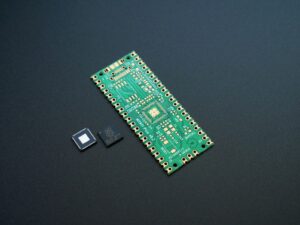Learning from Pioneering IoT Implementations in Manufacturing
Challenges and Solutions in Early IoT Projects
The early IoT projects in industrial automation and manufacturing provided numerous lessons that have shaped the current landscape of modern technology. In regions like Saudi Arabia and the UAE, where industries are rapidly advancing, these lessons are invaluable for ensuring successful IoT integration. One of the critical challenges encountered was the complexity of integrating IoT with existing systems. Many early adopters underestimated the effort required to achieve seamless connectivity between new IoT devices and legacy infrastructure. This oversight often led to project delays and increased costs. However, through rigorous testing and iterative development, companies learned the importance of thorough planning and phased implementation.
Another significant challenge was data management. Early IoT projects generated vast amounts of data, overwhelming traditional data processing systems. In cities like Riyadh and Dubai, industries have since adopted advanced data analytics and artificial intelligence (AI) to manage and interpret this data efficiently. AI-driven analytics help in predictive maintenance, optimizing production schedules, and reducing downtime. This evolution underscores the importance of investing in robust data management solutions and leveraging AI to gain actionable insights from IoT data. As a result, modern enterprises are better equipped to handle the data deluge, turning potential challenges into strategic advantages.
Security Concerns and Mitigation Strategies
Security was another major concern in the early IoT projects within industrial automation. The interconnected nature of IoT devices created new vulnerabilities, making systems susceptible to cyber-attacks. For example, unauthorized access to critical manufacturing processes could lead to operational disruptions or data breaches. In response, industries in the UAE and Saudi Arabia have implemented stringent security protocols to protect their IoT ecosystems. Blockchain technology has emerged as a pivotal solution, providing a decentralized and tamper-proof method for securing IoT networks. By leveraging blockchain, companies can ensure the integrity and security of data transactions across their IoT devices.
Moreover, the integration of advanced cybersecurity measures, such as end-to-end encryption and multi-factor authentication, has become standard practice. These strategies help mitigate risks and safeguard sensitive information. In Dubai, where technological advancements are rapidly adopted, the focus on cybersecurity in IoT projects is paramount. Executive coaching services are increasingly emphasizing the importance of cybersecurity awareness among leaders and managers. By understanding the potential risks and implementing proactive measures, businesses can protect their IoT investments and ensure long-term success. These lessons highlight the critical role of security in the successful deployment of IoT technologies in industrial settings.
Strategies for Future IoT Success in Industrial Automation
Embracing Innovation and Continuous Improvement
One of the most crucial lessons learned from early IoT projects in industrial automation is the importance of embracing innovation and continuous improvement. The rapid pace of technological advancements necessitates a proactive approach to IoT adoption. In Riyadh and Dubai, industries are at the forefront of incorporating generative artificial intelligence and other cutting-edge technologies to enhance their IoT ecosystems. By fostering a culture of innovation, businesses can stay ahead of the curve and capitalize on new opportunities. Continuous improvement involves regularly evaluating IoT performance, identifying areas for enhancement, and implementing necessary upgrades.
Executive coaching services play a vital role in this process, guiding leaders to cultivate an innovation-driven mindset. Through strategic planning and a commitment to excellence, organizations can overcome challenges and achieve sustainable growth. The lessons from early IoT projects emphasize the need for flexibility and adaptability. By being open to new ideas and willing to experiment, businesses can unlock the full potential of IoT technologies. This approach not only drives operational efficiency but also positions companies for future success in an increasingly competitive market.
Optimizing Leadership and Management Skills
Effective leadership and management are critical to the success of IoT projects in industrial automation. The lessons from early IoT implementations highlight the importance of strong leadership in navigating the complexities of technological integration. In the UAE and Saudi Arabia, where industries are rapidly evolving, leaders must possess a deep understanding of modern technology and its implications. Executive coaching services are essential in developing these skills, helping leaders to manage IoT projects effectively and drive business success. By fostering a collaborative and inclusive work environment, leaders can ensure that their teams are aligned with organizational goals.
Project management also plays a crucial role in the successful deployment of IoT technologies. From setting clear objectives to managing resources and timelines, effective project management ensures that IoT initiatives are executed smoothly. The lessons from early IoT projects underscore the importance of meticulous planning and execution. In cities like Riyadh and Dubai, where large-scale industrial projects are common, these skills are particularly valuable. By optimizing leadership and management capabilities, businesses can navigate the complexities of IoT integration and achieve their strategic objectives. This holistic approach to leadership and project management is key to realizing the full benefits of IoT technologies in industrial automation.
Conclusion
The lessons learned from early IoT projects in industrial automation provide a roadmap for modern enterprises aiming to leverage IoT for business success. In regions like Saudi Arabia and the UAE, these insights are crucial for navigating the complexities of IoT integration. By addressing challenges related to system integration, data management, and security, businesses can ensure successful IoT deployments. Embracing innovation and continuous improvement, along with optimizing leadership and management skills, are essential strategies for future success. As industries continue to evolve, the integration of IoT technologies will play a pivotal role in driving operational efficiency and business growth.
—
#IoTInIndustrialAutomation #ManufacturingIoTLessons #ArtificialIntelligence #Blockchain #TheMetaverse #ExecutiveCoaching #GenerativeAI #ModernTechnology #BusinessSuccess #LeadershipSkills #ProjectManagement













